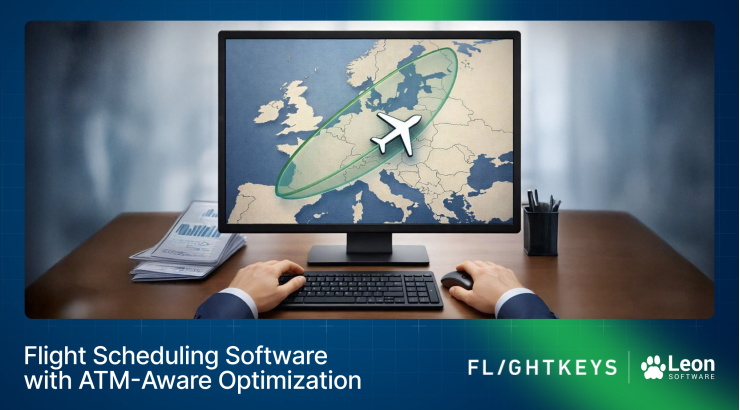CQL in Leon's checklist how does it improve your business
Today we will talk about something important, but maybe not so obvious – about CQL. Let's start with a few words about yourself. What is the story that led you to Leon?

Well, I've got over six years of working as a flight dispatcher. It brought me to a place where I wanted to translate my knowledge into doing something more. It was related to upgrading the tool that we all had been working on in in-flight dispatch. So after those experiences, in 2014 I started my career in Leon Software. At first, it was customer support, but over the last two years, I learned so much I could make some small contributions to the application.
So, you had a long way to be in this place
Yes. But it's good to have a broader view of the software. It's a great advantage when you work in the support team, and it could save a lot of time for developers. Also for a better understanding of the environment that we work for, I've started a Commercial Pilot License Training.
Let's start with something simple as a warm-up. What are checklists?
In Leon, checklists are at the heart of the workflow. They define the lists of tasks that the dispatch and sales departments must perform before a flight. Right after document templates, this is the area that customers most often want to customise.
Why does it need customisation?
The to-do list before a flight depends on many factors, such as the operator's country, its AOC, applicable regulations, fleet, types of operations, area of operations, the operator's internal procedures, customer and passenger preferences, and many others. The need for customization comes from internal processes in every company. If some of the services are more required than the others, you will want them on the top of your checklist.
How does Leon deal with this complexity?
Maybe I should start with a few words of introduction. Before CQL, there was a system for defining the conditions that we internally called CSS (Checklist Style Sheet). Although it worked well, the configuration was time-consuming, required IT knowledge, and the complex rules were difficult to implement.
The old configuration system reached its limits during the implementation of a large customer. Client representative sent us a very long list of automation they wanted to implement into the checklist. It was difficult to develop everything, so while doing this I realised two things.
Firstly, I thought it would be good to offer high-level automation to all our customers. After all, nothing increases efficiency and reduces errors as much as codifying the knowledge that is dispersed in the team into the rules form.
Secondly, I realised that, unfortunately, with the old system we were not able to do this because of its complexity and labour-intensive nature. We would not be able to implement this with over 300 clients.
So we've started to wonder whether we could replace the old system with a new one that would be very quick and easy to set up, while still allowing us to define very complex rules.
And this system is CQL?
Yes, CQL or Checklist Query Language. This is a simple but very expressive language for defining conditions that determines when particular checklist items are to be applied.
It allows translation of the operator's internal knowledge into simple rules by specifying all actions needed to be done before a flight with certain attributes.
And what is the benefit for the customer?
It can significantly reduce the time needed to handle flight-related tasks and reduce the risk of making mistakes or failing to do something. Both of these factors translate into financial savings very simply.
Can each operator have its own rules?
Yes. Many of the checklist items have default rules. However, any operator can override them or define completely new ones or even design a whole custom checklist. To do so, they must contact our support team.
How extensive are the CQL's capabilities?
Almost unlimited. Rules can be based on virtually any flight-related data we have in the system. They can use any attributes of the flight, aircraft, airports, countries, passengers, customers, crews, etc.
Can you give any examples of such rules?
Sure. For example, for element CARICOM APIS (ADEP) the rule is - “activity_type = flight AND departure_country IN (ATG, BHS, BRD, BLZ, DMA, GRD, GUY, HTI, JAM, MSR, LCA, KNA, VCT, SUR, TTO, AIA, BMU, VGB, CYM, TCA)”
A different example: for element UK DEFRA pet carrier approval the rule is - “activity_type = flight AND pax_animal = true AND destination_country = GBR”
So, are there any plans for the future development of this customization?
We don't want to provide you with puffed-up declarations. For now, we need to test in combat what we already have and we want to see what impact it will have on the productivity of our clients. I can say that at this moment it looks very promising.
Do you apply a CQL-like solution to other parts of the system?
Yes. We have a similar solution to control flight numbering. Also, the FTL module allows you to configure some of its aspects with similar rules.
Thanks for the talk!
Thank you!
Not yet a member of Leon community? Contact our Sales team to find out more or jump straight into the 30-day free trial.
TAGGED WITH



